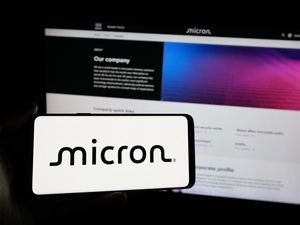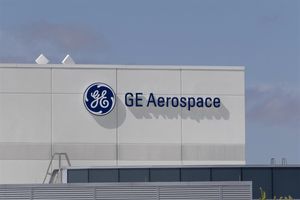
Taipei, Taiwan – October 21, 2025 – In a significant move signaling profound confidence in the burgeoning artificial intelligence (AI) sector, investment management firm Giverny Capital initiated a substantial 3.5% stake in Taiwan Semiconductor Manufacturing Company (NYSE: TSM) during the third quarter of 2025. This strategic investment, which places the world's leading dedicated chip foundry firmly within Giverny Capital's AI-focused portfolio, underscores the indispensable role TSMC plays in powering the global AI revolution. The decision highlights a growing trend among savvy investors to gain exposure to the AI boom through its foundational hardware enablers, recognizing TSMC as the "unseen architect" behind virtually every major AI advancement.
Giverny Capital's rationale for the increased investment is multifaceted, centering on TSMC's unparalleled dominance in advanced semiconductor manufacturing and its pivotal position in the AI supply chain. Despite acknowledging geopolitical concerns surrounding Taiwan, the firm views TSMC as a "fat pitch" opportunity, offering high earnings growth potential at an attractive valuation compared to its major customers like NVIDIA (NASDAQ: NVDA) and Broadcom (NASDAQ: AVGO). This move reflects a conviction that TSMC's technological lead and market share in critical AI-enabling chip production will continue to drive robust financial performance for years to come.
The Unseen Architect: TSMC's Technological Dominance in the AI Era
TSMC's technological prowess is the bedrock upon which the current AI supercycle is built. The company's relentless pursuit of advanced process nodes and innovative packaging solutions has solidified its position as the undisputed leader in manufacturing the high-performance, power-efficient chips essential for modern AI workloads.
At the forefront of this leadership is TSMC's aggressive roadmap for next-generation process technologies. Its 3nm (N3) process is already a cornerstone for many high-performance AI chips, contributing 23% of TSMC's total wafer revenue in Q3 2025. Looking ahead, mass production for the groundbreaking 2nm (N2) process is on track for the second half of 2025. This critical transition to Gate-All-Around (GAA) nanosheet transistors promises a substantial 10-15% increase in performance or a 25-30% reduction in power consumption compared to its 3nm predecessors, along with a 1.15x increase in transistor density. Initial demand for N2 already exceeds planned capacity, prompting aggressive expansion plans for 2026 and 2027. Further advancements include the A16 (1.6nm-class) process, expected in late 2026, which will introduce Super Power Rail (SPR) Backside Power Delivery Network (BSPDN) for enhanced power delivery, and the A14 (1.4nm) platform, slated for production in 2028, leveraging High-NA EUV lithography for even greater gains.
Beyond transistor scaling, TSMC's leadership in advanced packaging technologies is equally crucial for overcoming traditional limitations and boosting AI chip performance. Its CoWoS (Chip-on-Wafer-on-Substrate) 2.5D packaging, which integrates multiple dies like GPUs and High-Bandwidth Memory (HBM) on a silicon interposer, is indispensable for NVIDIA's cutting-edge AI accelerators. TSMC is quadrupling CoWoS output by the end of 2025 to meet surging demand. Furthermore, its SoIC (System-on-Integrated-Chips) 3D stacking technology, utilizing hybrid bonding, is on track for mass production in 2025, promising ultra-high-density vertical integration for future AI and High-Performance Computing (HPC) applications. These innovations provide an unparalleled end-to-end service, earning widespread acclaim from the AI research community and industry experts who view TSMC as an indispensable enabler of sustained AI innovation.
This technological edge fundamentally differentiates TSMC from competitors like Samsung (KRX: 005930) and Intel (NASDAQ: INTC). While rivals are also developing advanced nodes, TSMC has consistently been first to market with high-yield, high-volume production, maintaining an estimated 90% market share for leading-edge nodes and well over 90% for AI-specific chips. This execution excellence, combined with its pure-play foundry model and deep customer relationships, creates an entrenched leadership position that is difficult to replicate.
Fueling the Giants: Impact on AI Companies and the Competitive Landscape
TSMC's advanced manufacturing capabilities are the lifeblood of the AI industry, directly influencing the competitive dynamics among tech giants and providing critical advantages for innovative startups. Virtually every major AI breakthrough, from large language models (LLMs) to autonomous systems, depends on TSMC's ability to produce increasingly powerful and efficient silicon.
Companies like NVIDIA, the dominant force in AI accelerators, are cornerstone clients, relying on TSMC for their H100, Blackwell, and upcoming Rubin GPUs. TSMC's CoWoS packaging is particularly vital for integrating the high-bandwidth memory (HBM) essential for these AI powerhouses. NVIDIA is projected to surpass Apple (NASDAQ: AAPL) as TSMC's largest customer in 2025, with its share of TSMC's revenue potentially reaching 21%. Similarly, Advanced Micro Devices (NASDAQ: AMD) leverages TSMC's leading-edge nodes (3nm/2nm) and advanced packaging for its MI300 series data center GPUs, positioning itself as a strong challenger in the HPC market.
Apple, a long-standing TSMC customer, secures significant advanced node capacity (e.g., 3nm for M4 and M5 chips) for future chips powering on-device AI capabilities in iPhones and Macs. Reports suggest Apple has reserved a substantial portion of initial 2nm output for future chips like A20 and M6. Hyperscale cloud providers such as Alphabet's Google (NASDAQ: GOOGL), Amazon (NASDAQ: AMZN), Meta Platforms (NASDAQ: META), and Microsoft (NASDAQ: MSFT) are increasingly designing custom AI silicon (ASICs) to optimize performance for their specific workloads, relying almost exclusively on TSMC for manufacturing. Even OpenAI is strategically partnering with TSMC to develop its own in-house AI chips, reportedly leveraging the advanced A16 process.
This deep reliance on TSMC creates significant competitive implications. Companies that successfully secure early and consistent access to TSMC's advanced node capacity gain a substantial strategic advantage, enabling them to bring more powerful and energy-efficient AI hardware to market sooner. This can widen the gap between AI leaders and laggards, creating high barriers to entry for newer firms without the capital or strategic partnerships to secure such access. The continuous push for more powerful chips also accelerates hardware obsolescence, compelling companies to continuously upgrade their AI infrastructure, potentially disrupting existing products or services that rely on older hardware. For instance, enhanced power efficiency and computational density could lead to breakthroughs in on-device AI, reducing reliance on cloud infrastructure for certain tasks and enabling more personalized and responsive AI experiences.
Geopolitical Chessboard: Wider Significance and Lingering Concerns
Giverny Capital's investment in TSMC, coupled with the foundry's dominant role, fits squarely into the broader AI landscape defined by an "AI supercycle" and an unprecedented demand for computational power. This era is characterized by a shift towards specialized AI hardware, the rise of hyperscaler custom silicon, and the expansion of AI to the edge. The integration of AI into chip design itself, with "AI designing chips for AI," signifies a continuous, self-reinforcing cycle of hardware-software co-design.
The impacts are profound: TSMC's capabilities directly accelerate global AI innovation, reinforce strategic advantages for leading tech companies, and act as a powerful economic growth catalyst. Its robust financial performance, with net profit soaring 39.1% year-on-year in Q3 2025, underscores its central role. However, this concentrated reliance on TSMC also presents critical concerns.
The most significant concern is the extreme supply chain concentration. With over 90% of advanced AI chips manufactured by TSMC, any disruption to its operations could have catastrophic consequences for global technology supply chains. This is inextricably linked to geopolitical risks surrounding the Taiwan Strait. China's threats against Taiwan pose an existential risk; military action or an economic blockade could paralyze global AI infrastructure and defense systems, costing electronic device manufacturers hundreds of billions annually. The ongoing US-China "chip war," with escalating trade tensions and export controls, further complicates the supply chain, raising fears of technological balkanization.
Compared to previous AI milestones, such as expert systems in the 1980s or deep learning advancements in the 2010s, the current era is defined by the sheer scale of computational resources and the inextricable link between hardware and AI innovation. The ability to design, manufacture, and deploy advanced AI chips is now explicitly recognized as a cornerstone of national security and economic competitiveness, akin to petroleum during the industrial age. This has led to unprecedented investment in AI infrastructure, with global spending estimated to exceed $1 trillion within the next few years.
The Road Ahead: Future Developments and Expert Predictions
Looking ahead from late 2025, TSMC and the AI-focused semiconductor industry are poised for continued rapid evolution. TSMC's technological roadmap remains aggressive, with its 2nm (N2) process ramping up for mass production in the second half of 2025, followed by the A16 (1.6nm) node in 2026, incorporating backside power delivery, and the A14 (1.4nm) process expected in 2028. Advanced packaging technologies like CoWoS and SoIC will see continued aggressive expansion, with SoIC on track for mass production in 2025, promising ultra-high bandwidth essential for future HPC and AI applications.
The AI semiconductor industry will witness a sustained skyrocketing demand for AI-optimized chips, driven by the expansion of generative AI and edge computing. There will be an increasing focus on "inference"—applying trained models to data—requiring different chip architectures optimized for efficiency and real-time processing. Edge AI will become ubiquitous, with AI capabilities embedded in a wider array of devices, from next-gen smartphones and AR/VR devices to industrial IoT and AI PCs. Specialized AI architectures, high-bandwidth memory (HBM) innovation (with HBM4 anticipated in late 2025), and advancements in silicon photonics and neuromorphic computing will define the technological frontier.
These advancements will unlock a new era of applications across data centers, autonomous systems, healthcare, defense, and the automotive industry. However, significant challenges persist. Geopolitical tensions in the Taiwan Strait remain the paramount concern, driving TSMC's strategic diversification of its manufacturing footprint to the U.S. (Arizona) and Japan, with plans to bring advanced N3 nodes to the U.S. by 2028. Technological hurdles include the increasing cost and complexity of advanced nodes, power consumption and heat dissipation, and achieving high yield rates. Environmentally, the industry faces immense pressure to address its high energy consumption, water usage, and emissions, necessitating a transition to renewable energy and sustainable manufacturing practices.
Experts predict a sustained period of double-digit growth for the global semiconductor market in 2025 and beyond, primarily fueled by AI and HPC demand. TSMC is expected to maintain its enduring dominance, with 2025 being a critical year for the 2nm technology ramp-up. Strategic alliances and regionalization efforts will continue, alongside the emergence of novel AI architectures, including AI-designed chips and self-optimizing "autonomous fabs."
Wrap-Up: A Golden Age for Silicon, A Risky Horizon
Giverny Capital's substantial investment in Taiwan Semiconductor Manufacturing Company is a clear affirmation of TSMC's irreplaceable role at the heart of the AI revolution. It reflects a strategic understanding that while AI software and algorithms capture headlines, the underlying hardware, meticulously crafted by TSMC, is the true engine of progress. The company's relentless pursuit of smaller, faster, and more efficient chips, coupled with its advanced packaging solutions, has ushered in a golden age for silicon, fundamentally accelerating AI innovation and driving unprecedented economic growth.
The significance of these developments in AI history cannot be overstated. TSMC's pioneering of the dedicated foundry model enabled the "fabless revolution," laying the groundwork for the modern computing and AI era. Today, its near-monopoly in advanced AI chip manufacturing means that the pace and direction of AI advancements are inextricably linked to TSMC's technological roadmap and operational stability.
The long-term impact points to a centralized AI hardware ecosystem that, while incredibly efficient, also harbors significant geopolitical vulnerabilities. The concentration of advanced chip production in Taiwan makes TSMC a central player in the ongoing "chip war" between global powers. This has spurred massive investments in supply chain diversification, with TSMC expanding its footprint in the U.S. and Japan to mitigate risks. However, the core of its most advanced operations remains in Taiwan, making the stability of the region a paramount global concern.
In the coming weeks and months, investors, industry observers, and policymakers will be closely watching several key indicators. The success and speed of TSMC's 2nm production ramp-up in Q4 2025 and into 2026 will be crucial, with Apple noted as a key driver. Updates on the progress of TSMC's Arizona fabs, particularly the acceleration of advanced process node deployment, will be vital for assessing supply chain resilience. Furthermore, TSMC's Q4 2025 and Q1 2026 financial outlooks will provide further insights into the sustained demand for AI-related chips. Finally, geopolitical developments in the Taiwan Strait and the broader US-China tech rivalry will continue to cast a long shadow, influencing market sentiment and strategic decisions across the global technology landscape.
This content is intended for informational purposes only and represents analysis of current AI developments.
TokenRing AI delivers enterprise-grade solutions for multi-agent AI workflow orchestration, AI-powered development tools, and seamless remote collaboration platforms.
For more information, visit https://www.tokenring.ai/.






